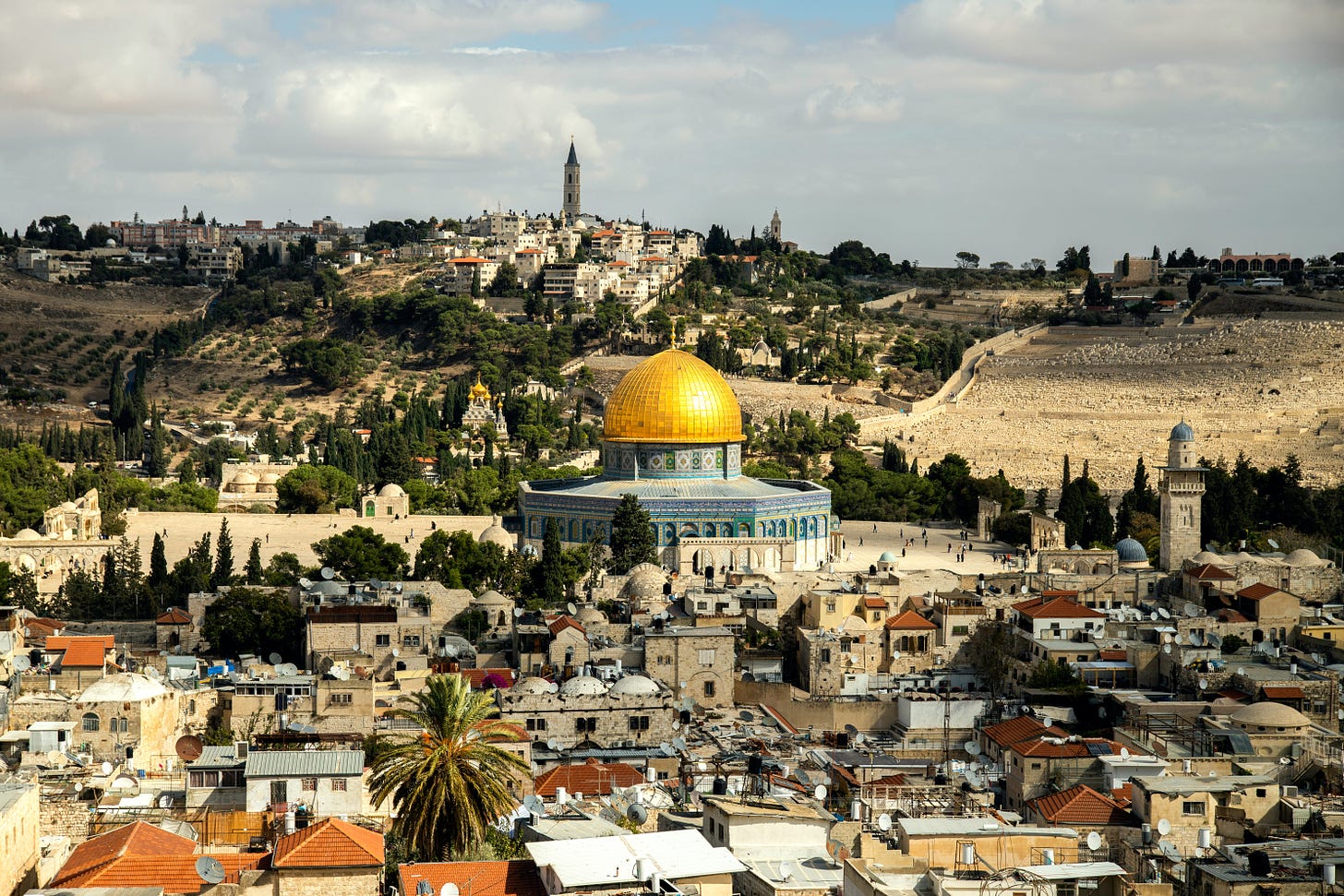Jesus’s Jerusalem odyssey.
The importance of the ancient metropolis in the Messiah’s mission.

It is no exaggeration to say that the epicenter of all ancient life can be encapsulated in a literal “tale of two cities,” those being Rome and Jerusalem. Each of these metropolises held and continues to hold both immense religious and sociological significance in mankind’s history. Indeed, with a biblical consideration in view, Jerusalem’s “importance . . . can scarcely be overestimated” (Walton, 408). The Lukan account of Jesus’s life comprises the majority of the Synoptic references to the city, bookending his account in the Jerusalem temple (Luke 1:8–22; 24:53). In so doing, Luke brings an emphasis to the city that is unlike the Matthean and Markan accounts, alluding to the grandeur and inclusivity of the gospel itself. Luke makes numerous allusions to Jesus’s determination to “journey to Jerusalem” (Luke 9:53; 13:22, 33; 17:11; 18:31; 19:28), which, again, focuses our attention on Israel’s capital and the Messiah’s occasion with it; namely, judgment and reformation.
Jesus’s Jerusalem odyssey is largely an extended adjudication of its people for their rejection of the Messiah. “Jerusalem, Jerusalem,” Jesus laments, “who kills the prophets and stones those who are sent to her. How often I wanted to gather your children together, as a hen gathers her chicks under her wings, but you were not willing! See, your house is abandoned to you. I tell you, you will not see me until the time comes when you say, ‘Blessed is he who comes in the name of the Lord’!” (Luke 13:34–35). Their dismissal of the Messiah will lead to the abandonment and utter destruction of the temple. “They will crush you and your children among you to the ground,” Jesus warns, “and they will not leave one stone on another in your midst, because you did not recognize the time when God visited you” (Luke 19:41–44; cf. 21:20–24; 23:27–31).
Jerusalem’s nonacceptance of Jesus is due in large part to his penchant for upsetting the colloquial beliefs of who the Messiah would be and what he would come to accomplish. Rather than calling for the abdication of the Roman emperor and affirming an aggressive resistance movement to Roman dominion, he preached of a kingdom coming through death and resurrection. Throughout these censures, Christ was after not only the attention of his people but also that of his disciples, who despite being made privy to countless oracles from Christ himself about who the Messiah was and what he was coming to do, failed to understand Jesus’s message of foreordained surrender and sacrifice.
With Jesus’s increased stress on Jerusalem and reforming its colloquial connotations, he set out to reshape “the people of God around himself” (Walton, 412). He does so by pronouncing “prophetic judgment on Jerusalem for its failure to recognize that, in Jesus’ coming, God himself has graciously drawn near” (Green, 545). No longer was a specific place or people the only recipients of God’s favor. God’s favor is for those who would worship him in spirit and truth (John 4:21–24). His kingdom and people are citizens of faith. Jesus himself, therefore, “stands in judgment against everyone who will not accept his acceptance of the world by faith alone,” writes Robert Capon (116). Instead of a Mecca that would be reclaimed through a forceful takeover, Jesus speaks of a personable Messiah whose deference would lead to the deliverance of all those who put their faith in him.
Works cited:
Robert Capon, The Parables of Judgment (Grand Rapids, MI: Eerdmans, 1989).
J. B. Green, “Gospel of Luke,” Dictionary of Jesus and the Gospels, 2nd edition (Downers Grove, IL: InterVarsity Press, 2013).
S. Walton, “Jerusalem,” Dictionary of Jesus and the Gospels, 2nd edition (Downers Grove, IL: InterVarsity Press, 2013).


